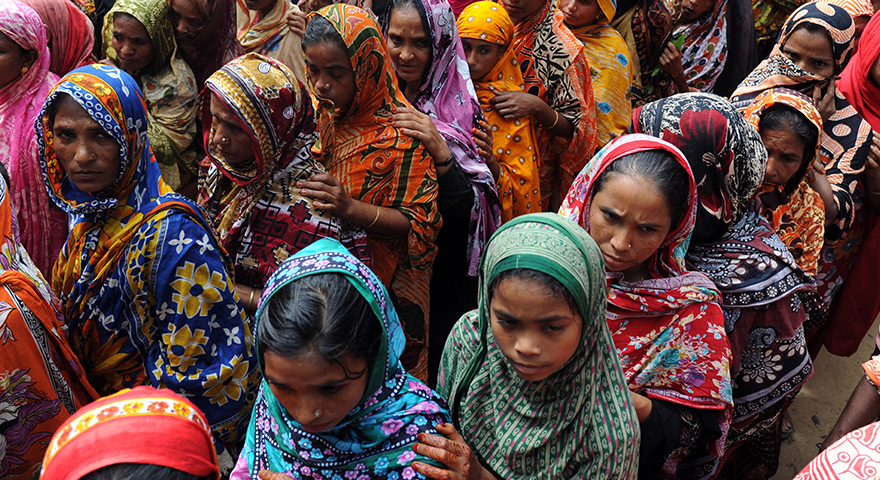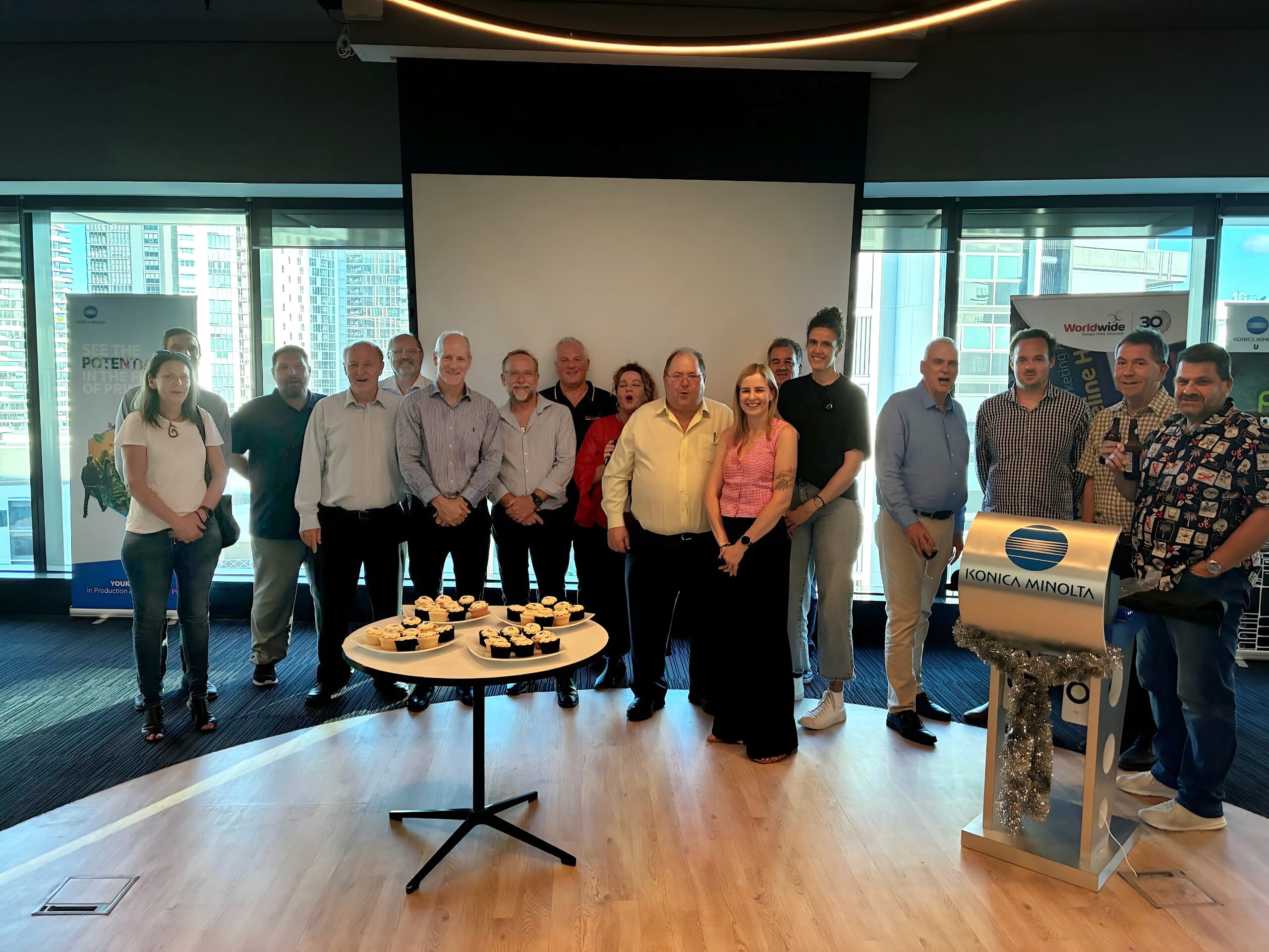Ethical sourcing is about embedding human rights due diligence into core business, a process that often leads to greater efficiency and market advantage.
Ethical sourcing best practice
It is not about conducting comprehensive due diligence on all of your supplier base, it is about being smarter in your processes of understanding where those risks might lie.
With more organisations sourcing products in a responsible manner while working with suppliers to improve their social and environmental practices, together we can work towards ensuring that human rights policies and procedures are embedded across the business.
Work with your existing suppliers to improve the conditions of their workers or those of their sub-contractors. Only then can you have the confidence that you are making progress in eliminating exploitative labour practices throughout your supply chain.
For a good understanding of the process Konica Minolta Australia is undertaking, download our Ethical Sourcing Roadmap, which describes the three-stage, 18-month measures we’re taking locally to ensure that slavery or inequitable employment practices play no part in our business operations.
Ethical sourcing is the process of procuring goods and services which do not involve any kind of worker exploitation in their production or delivery.
While our traditional conception of slavery – the buying and selling of people – is globally outlawed and much less prevalent, it does surface in other forms in global supply chains. This includes:
Human trafficking for forced labour; Excessive and illegal payment of worker recruitment fees, resulting in situations of debt bondage; Retention of worker identity documents, including passports which restrict freedom of movement; and Use of or threat of force and intimidation.
It’s estimated by the Global Slavery Index that over 30 million people in the world live in some form of modern slavery. The International Labour Organisation further estimates the annual profits of forced labour amounts to US $150 billion.
It may seem obvious that your organisation wouldn’t do business with those profiting from labour exploitation. But modern supply chains are multi-tiered, multinational and highly complex. In Konica Minolta’s case, for example, there are thousands of supply chains that contribute components in electronics manufacturing.
This means that there’ll likely be some serious digging to do before you can feel comfortable that your organisation is sufficiently addressing these risks.
Human rights due diligence has become an imperative
The United Nation’s Guiding Principles on Business and Human Rights is the foundational blueprint for companies wanting to understand more about their human rights risks. It outlines that the corporate responsibility to protect means avoiding either directly or indirectly contributing to adverse human rights impacts. Pragmatically, it outlines a process for companies to prioritise those risks that are most severe or have the greatest negative impact; these are known as salient issues.
In Australia, human trafficking, slavery and slavery-like practices are a criminal offence under the Commonwealth Criminal Code and are applicable to behaviour both within Australia and overseas. These laws also apply to corporate bodies.
The Commonwealth Procurement Act promotes ethical sourcing, although it has not become a legal necessity in Australia – yet. Last week the government confirmed its intention to conduct national consultations on business and human rights in 2016. Consultations are likely to commence in late May and will include discussion on a National Action Plan on Business and Human Rights.
Ethical sourcing has become a legal requirement of doing business in some other countries. The US has legislation on the responsible sourcing of conflict minerals, as well as Federal Procurement guidelines on anti-human trafficking. Similarly, the UK enacted the Modern Slavery Act in 2015 requiring companies with an annual turnover over £36 million to disclose the steps they are taking to reduce slavery in their supply chains.
Today’s organisations are increasingly protective of their brand image, and there is increased media coverage of worker exploitation. It’s not only the danger of being named and shamed; for a B2B company, ethical sourcing can be a matter of competitive edge.
Major Australian and multi-national companies are actively pursuing procurement strategies that meet human rights and ethical standards across a number of different industries including finance, telecommunications, clothing, food and agriculture, fast moving consumer goods, mining and construction. To sell your products or services to these organisations (or any level of government, education or health) in the future, you should be cognisant of these standards too.
Commodities Risk
While attention should be focused on addressing salient human rights impact, many organisations will intersect with a number of different commodities risks across their operations and supply chains. A few common examples include:
Conflict Minerals: gold, tin, tungsten and cobalt sourced from the DRC and surrounding areas. Cotton: sourced from Uzbekistan, has a high risk of being picked through State-sanctioned forced labour. Clothing manufacturing: especially from Asia and Turkey has been exposed to labour and safety risks for workers. Electronics manufacturing: is a particularly risky industry for migrant workers characterised by the payment of high recruitment fees and excessive overtime. It is not about conducting comprehensive due diligence on all of your supplier base, it is about being smarter in your processes of understanding where those risks might lie.
If you’re the local subsidiary of an overseas company or if your primary business is in dealership, you may have less control over purchasing and manufacturing decisions. At Konica Minolta we’re fortunate that our parent in Japan is fully committed to embedding human rights due diligence across its entire product range.
Here at Konica Minolta we take ethical sourcing seriously – from our Tokyo head office to our local operations. We’re working towards a position where we can assure our customers that the equipment and services they purchase from us are procured responsibly – which will in turn support our customers in meeting their own ethical sourcing goals.
What’s the next step?
For most organisations, meeting ethical sourcing goals is not a ‘tick in the box’ exercise. It is about going beyond compliance to ensure that human rights policies and procedures are embedded and effective across your business. Sometimes remediation is required; as is working with your existing suppliers to improve the conditions of their workers or those of their sub-contractors. Only then can you have the confidence that you are making progress in eliminating exploitative labour practices throughout your supply chain.
For a good understanding of the process Konica Minolta Australia is going through, download our Ethical Sourcing Roadmap, which describes the three-stage, 18-month measures we’re taking locally to ensure that slavery or inequitable employment practices play no part in our business operations.
If you’d like to read more on human rights due diligence, download the UN Guiding Principles on Business and Human Rights.





